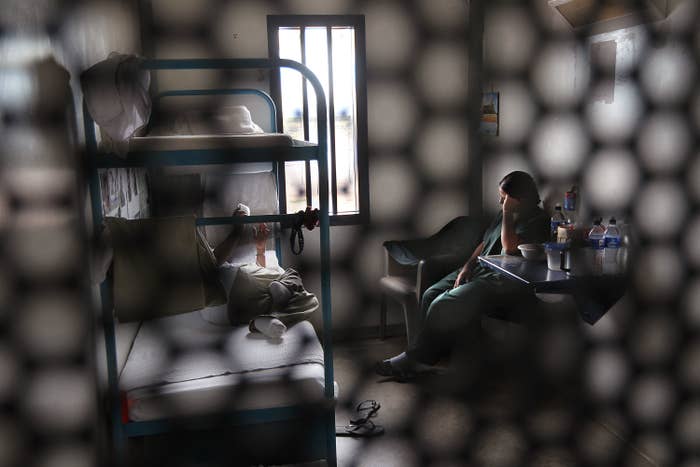
Since January 2017, at least four dozen people have died while being held in detention by Immigration and Customs Enforcement.
Some were old, and some were young. Some had been in the US for years before being detained; others came here only recently, seeking refuge or better economic circumstances. Some were in terrible health upon arrival; others became ill while in custody.
One man from Jamaica, who had an aggressive but treatable form of cancer, was locked in solitary confinement for over a week without receiving medical care and died a month later. A Honduran transgender woman who sought asylum in the US was severely dehydrated, showed signs of starvation, and wasn’t given antiretroviral medication before she died, according to the local medical examiner, of complications from AIDS. And at least three people killed themselves even though they were supposed to be under close observation for mental health concerns.
In June 2019, BuzzFeed News filed a Freedom of Information Act request seeking the release of emails, investigative reports, medical records, and other documents related to 25 deaths in custody that ICE had publicly disclosed since President Donald Trump took office.
When the agency did not promptly provide records, BuzzFeed News filed a successful lawsuit against the Department of Homeland Security, ICE’s parent agency. To date, DHS has produced more than 5,000 pages of documents related to deaths in ICE custody. Collectively, they tell the story of how ICE has in some instances failed to provide adequate care to detainees, some of whom are locked up for months or years before their immigration cases are resolved.
The agency is expected to hand over more records in the future; BuzzFeed News today is releasing all of the case files that have been turned over. Although there have been news reports and congressional investigations on many of these incidents, the full record behind these deaths has never before been made available.
ICE has publicly insisted that both the detention facilities it runs as well as those that are operated by private, for-profit corporations provide thorough and adequate medical care to all detainees. In response to a request for comment on this story, ICE said the agency takes the health and safety of detainees very seriously and while deaths are “unfortunate and always a cause for concern,” they are “exceedingly rare.”
But internal emails show that ICE’s own investigators raised serious concerns about the agency’s care of the people it detains, with one employee describing the treatment leading up to one death as “a bit scary.”
The documents show that:
CoreCivic, which operates several ICE detention centers through contracts with the agency — including Cibola County Correctional Center in Milan, New Mexico, where Roxsana Hernandez was held before her death — said in a statement that it takes seriously its obligation to adhere to federal detention standards, though in the majority of its facilities it is not responsible for the healthcare services to detainees. (The company’s full statement to the media after she died is available on its website.) GeoGroup, another private firm running facilities for ICE, referred questions to the agency.
Under Trump, who has pushed for aggressive immigration enforcement, ICE has locked up people in record numbers. The population in custody peaked in the summer of 2019 when roughly 55,000 immigrants were being held in local jails and private prisons across the country, where ICE is responsible for their healthcare and safety.
Although ICE has maintained that it takes the well-being of its detainees seriously and spends hundreds of millions of dollars on their medical needs, immigrant advocates have repeatedly questioned the quality of care in ICE custody, concerns that grew this year as detainees began contracting COVID-19. Despite a dramatic dip in the detention population in recent months due to the pandemic, 21 immigrants died in ICE custody in the most recent fiscal year ending Sept. 30, the highest number of such deaths under the agency’s watch in 15 years. Several of those who died tested positive for the coronavirus.
As part of agency protocol, ICE reviews each death and also notifies the DHS Office of Inspector General. Death reviews can involve reviewing documents and interviews of representatives of detention center operators, outside healthcare providers, and third-party consultants, as well as senior agency leadership.









